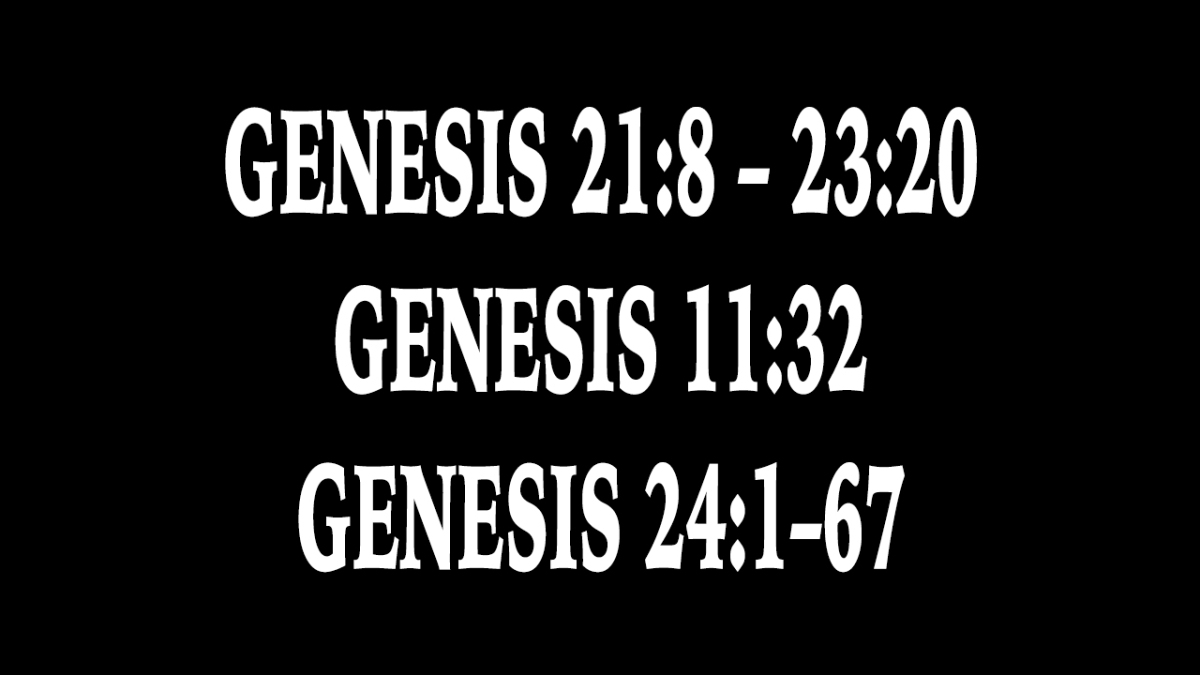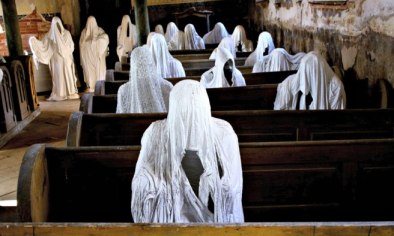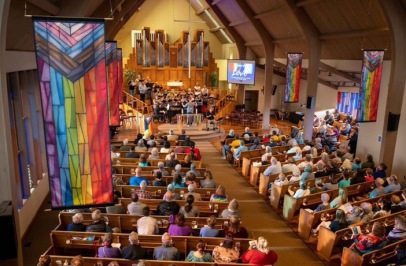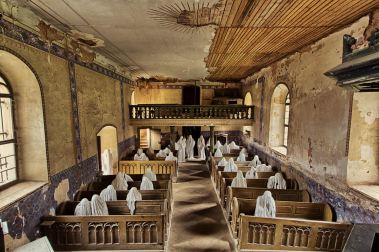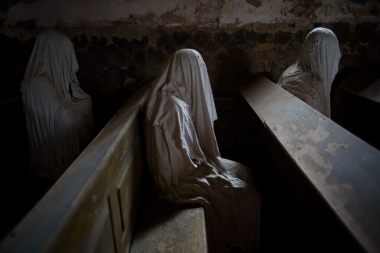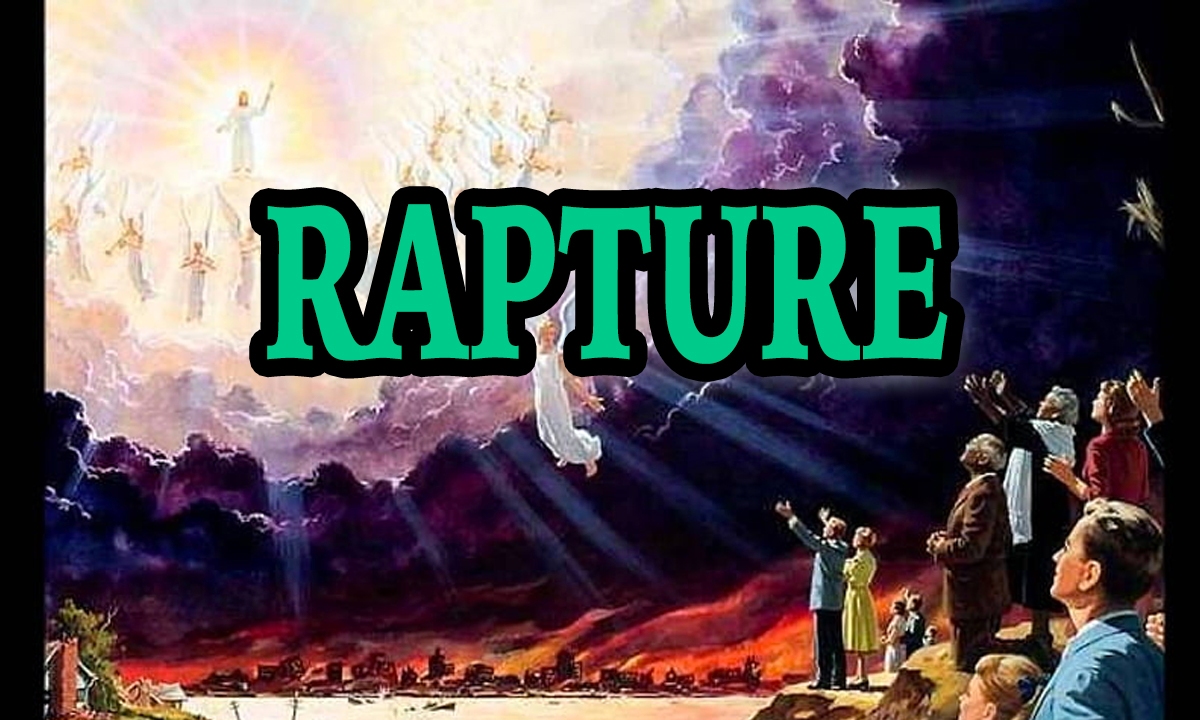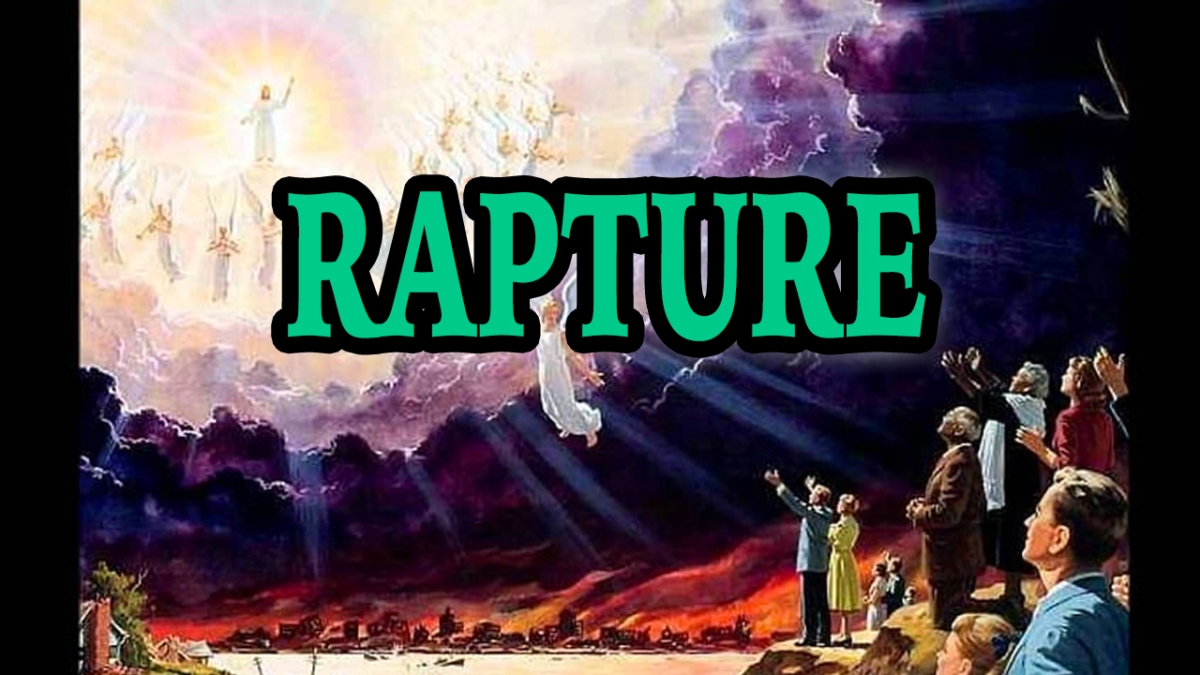Genesis 21:8 – 23:20 / 11:32 / 24:1-67
GOD IS WITH YOU (Genesis 21:8-34)
In Genesis 21:8-9, it is written that Abraham prepares a huge feast to celebrate that Isaac has now been weaned from his mother’s milk. However, on the day that was supposed to be a joyous occasion, Sarah sees Ishmael “mocking” and so in 21:10, she explodes with rage and demands for Abraham to “drive out” Hagar and Ishmael, saying, “the son of this maid shall not be an heir with my son Isaac.”
In those ancient times, a toddler was typically weaned between ages 2-3. And since 17:25 informs us that Ishmael had been 13 years of age one year prior to the birth of Isaac, we know that Ishmael would have been 14 years of age when Isaac was born. Thus, by the time Isaac was weaned, Ishmael would have been between 16-17 years of age. When Scripture says that Ishmael was “mocking”, it is the Hebrew word צָחַק [H6711] ṣāḥaq (tsaw-khak’), which implies mocking, jesting, and laughing outright (in merriment or scorn), as if to make sport of someone. Considering the context of the passage centering around Isaac being weaned, it is reasonable to infer that Ishmael made a crude joke about Isaac no longer being able to suck on Sarah’s breasts, perhaps even implying that Isaac relied on Sarah’s breasts longer than he should have. We don’t know. But we do know that whatever he said caused Sarah to erupt in anger. Noteworthy is the fact that this Hebrew word for “mocking” was also used in 17:17 and 18:12 when both Abraham and Sarah had “laughed” at the thought of them having a child in their old ages. It is also the same word used in 19:14 when Lot’s sons-in-law believed he was “jesting” about the coming judgment. The same word is also used in Judges 16:25 when Samson, after being blinded, was forced to be sport before the Philistines and “entertained” them. Therefore, the word implies the use of sarcasm.
The only difference between Abraham and Sarah laughing and Ishmael laughing was that Abraham and Sarah had laughed within while trying to be respectful whereas Ishmael laughed for all to see while being blatantly disrespectful. Though Sarah had previously been guilty of the same sarcastic laughter, she allowed hatred in her heart toward Hagar and Ishmael, considering their sins worse than her own. Even though the birth of Ishmael via Hagar had been Sarah’s idea (Genesis 16:2), she saw how both Hagar (16:4) and Ishmael had pridefully disrespected her, and so Sarah now demands for Abraham to drive them away. The first eruption between Sarah and Hagar is recorded in 16:5-15 when Sarah drove Hagar away, but then the Lord brought her back and Abraham welcomed her back. For this reason, Sarah now demands that Abraham be the one to drive them away. I believe that Sarah knew that if Abraham drove them away, they would not return.
At first glance, it seems as if Sarah made an unnecessary and rash decision in an overreacted emotional outburst; however, it’s easy to overlook the fact that Sarah allowed Hagar and Ishmael to remain with them for at least 16-17 years, including the 2-3 years she had Isaac. And because Sarah had Isaac 2-3 years prior to this eruption that led to eviction, it is evident that Sarah didn’t want to drive them away simply because she had Isaac; if that were the case, then she would have demanded them to be driven away as soon as she gave birth to Isaac. Rather, it seems evident that Sarah’s presented case for the need of them to be driven away had accumulated evidence over several years and then Ishmael’s disrespectful mockery became, as the saying goes, the straw that broke the camel’s back.
It is written in 21:11 that the thought of driving Hagar and Ishmael away brought Abraham grief because he considered Ishmael to be his son. However, it is written in 21:12-13, “12 But God said to Abraham, ‘Do not be distressed because of the lad and your maid; whatever Sarah tells you, listen to her, for through Isaac your descendants shall be named. 13 And of the son of the maid I will make a nation also, because he is your descendant.’ ”
What GOD says to Abraham is interesting because He identifies Hagar as an אָמָה [H519] ‘āmâ (aw-maw’), which means a maid-servant or female slave. Therefore, GOD Himself declares that even though Abraham had taken Hagar as his second “wife” (16:3), she was not his wife. Moreover, GOD identifies Ishmael as a נַעַר [H5288] naʿar (nah-air’), which means a young man, but by implication, one who is a servant. Hence, this is why GOD, using the Hebrew word for son, בֵּן [H1121] bēn (bane), identifies Ishmael as Hagar’s son and not Abraham’s son (the word bēn had been discussed in chapter 6). However, GOD says that even though Ishmael is Hagar’s son, he is still Abraham’s זֶרַע [H2233] zeraʿ (zeh-rah’), which means seed. GOD says, therefore, He will still make a nation from Ishmael because he is Abraham’s seed. In fact, this is what the Lord had promised back in 16:10 when the Lord appeared to Hagar as the “the angel of the Lord.”
So, what was Abraham’s response? Faithful obedience. However, Abraham’s love is evident because in 21:14, it is written that he rises early in the morning and gives Hagar bread and water for her journey. This means that even though GOD told him the day before that he is permitted to send Hagar and Ishmael away, Abraham allowed them to sleep in comfort that night and didn’t send them away while it was dark outside. In addition, he gave them food and water (which he didn’t have to do). Abraham wanted to provide for them the best timing for their journey and resources that would aid in their survival. And then Hagar and Ishmael “departed and wandered about in the wilderness of Beersheba.”
In 21:15-18, with all the water now gone, Hagar abandons Ishmael under a bush, traveling “about a bowshot away” from him to be alone because she doesn’t want to see him die. According to Jewish tradition, the length of a “bowshot” is about half a mile (880 yards) – that’s the distance of almost nine American football fields. It is written that Hagar was facing the opposite way so as not to see Ishmael, but could he still see her? Depending on the landscape, it’s possible. Regardless, at age 16-17, he would have been smart enough to realize that Hagar desired to separate from him and he would have felt abandoned and unloved. Interestingly, Scripture describes Hagar weeping loudly and yet it is written that “God heard the lad crying” and then an angel calls to Hagar from Heaven and says, “Do not fear, for God has heard the voice of the lad where he is.” And then Hagar is instructed to return to Ishmael and to comfort him because the Lord will make a nation of him. The fact that Scripture states how GOD hears Ishmael’s cries yet is silent about hearing Hagar’s cries seems to imply that his cries were justified whereas her cries were unwarranted. If you remember, back in 16:10, the Lord promised Hagar that He would multiply her descendants and they would be too many to count. In addition, in 16:12, the Lord had already told Hagar that Ishmael “will live to the east of all his brothers.” Therefore, if the Lord had told her that she was going to have countless descendants and that Ishmael would have brothers and would live east of them, why would she faithlessly abandon Ishmael to die? Her actions could not be considered as being morally right because she chose to place her own feelings over the feelings and wellbeing of her only son, whom the Lord promised would live and become a nation. A mother is supposed to selflessly love her child to the very end – even wild animals do that. Hagar’s current circumstance does not match GOD’s promised description of what is to come; hence, GOD ignoring her cries yet hearing the cries of Ishmael seems to be a silent rebuke of her decisions to selfishly abandon her son and faithlessly doubt GOD’s promises. Thus, this incident reveals that GOD keep His promises, but it also reveals just how much love GOD has for those whom the world cares nothing about. Both Hagar and Ishmael were considered to be poor, homeless, peasant nomads by the world’s standards, yet life is always precious and valuable in GOD’s sight.
In 21:19, after Hagar returns to Ishmael, GOD opens her eyes and enables her to see a well of water from where they may drink and sustain their lives. So, why did GOD wait until all of their initial water supply was gone and Hagar traveled half a mile away from Ishmael before acknowledging them, redirecting them, and blessing them? Simply put, GOD’s reasoning for the way He does things has to do with GOD’s perfect timing of His perfect plan and His perfect will for our discipline and sanctification. Much of what GOD chooses to do often seems evil from our limited perspectives as finite and fallible beings, but it is because we cannot see the overall big picture of salvation as GOD sees it. However, if we trust in the Lord, then just as it is written in Romans 8:28, “we know that God causes all things to work together for good to those who love God, to those who are called according to His purpose.” Think about it. By GOD allowing the initial water supply to run out, Hagar ran into another dead-end wall. If you recall, in Genesis 16:7,13-14, the Lord transformed a dead-end wall into a well of life for her. And because she now knows the Lord from that experience, He showed her that the same GOD who saved her then is the same GOD who saves her now. Also, the Lord showed her once again that there is no life apart from the Lord and that she most certainly can trust in the Lord to fulfill His promises. Though Hagar and Ishmael had been separated from Abraham’s care, this story reveals that nothing can separate us from the love of GOD (Romans 8:38-39). And so GOD sometimes allows us to go through things so we can learn, and then He can redirect us and open our eyes to the Living Water. Sometimes we need to find out the hard way that our ways are not The Way.
This story concludes in 21:20-21 by saying, “20 God was with the lad, and he grew; and he lived in the wilderness and became an archer. 21 He lived in the wilderness of Paran, and his mother took a wife for him from the land of Egypt.”
GOD was with Ishmael. And as Paul will later write in Romans 8:31, “If God is for us, who is against us?” Ishmael became an archer. This seems to explain why the distance between him and his mother in Genesis 21:16 was described as “about a bowshot away”. Ishmael had been driven out into the wilderness (21:14), that’s where GOD was with him while he learned to survive, and so it seems he simply chose to remain in the wilderness. The harsh environment is probably what led him to becoming “a wild donkey of a man” (16:12). But why did Hagar get a wife for him from the land of Egypt? Well, if you remember, 16:1 informs us that Hagar was Egyptian; therefore, it is likely that Ishmael’s wife had been one of Hagar’s relatives. And as we will soon see in our chronological journey (37:25-28), Joseph will be sold by his own brothers as a slave to Ishmaelites who are traveling to Egypt. The Ishmaelites will arrive just in time to buy Joseph’s life in order to save him from death. And so even at this very moment in this current story when all things seem to be hopelessly wrong for Hagar and Ishmael, GOD is with them and is even putting His perfect plan in place for Joseph (and all nations who will end up being saved through Joseph)! So, the next time you find yourself asking, “Why, Lord, did you allow this to happen?”, remember that GOD is with you and He is even putting His perfect plan in place for future incidents of what will seem to be dead-end walls of despair. And it will be there at the wailing wall, if you seek the Lord in prayer, He will open your eyes and enable you to see the Living Water so that your life may be revived.
In 21:22, it is written, “Now it came about at that time that Abimelech and Phicol, the commander of his army, spoke to Abraham, saying, “God is with you in all that you do;” and then the story goes on in 21:23-34 to describe how Abimelech and Abraham make a covenant with each other at Beersheba. Therefore, Scripture informs us that GOD was with Ishmael at the same time GOD was with Abraham even though a great distance separated the two. And just as the incident with Hagar and Ishmael leads to future plans involving Joseph, the town of Beersheba leads to future plans as well because it becomes famous as marking the southern boundary of the nation of Israel (Judges 20:1; 1Samuel 3:20). Therefore, these simultaneous stories are yet more examples of GOD’s omnipresence, omniscience, omnipotence, and even His omnibenevolence.
Questions to consider:
- Can you now see how Abraham’s decision to take a second wife created catastrophic consequences? Can you see how important it is that we adhere to GOD’s design and live according to His will?
- Are you able to recognize how GOD takes our bad decisions and creates good outcomes from them?
- How will we ever learn to be dependent upon the Lord alone unless we are removed from everyone and everything we have become dependent upon? Is there someone or something you are depending upon that is blocking your intimate relationship of trust with the Lord?
- Is your ‘water supply’ empty? Have you encountered a dead-end wall of despair? Will you cry out to the Lord so that He can open your eyes and enable you to see the Living Water so that your life may be revived once again?
- GOD is with you and is causing all things to work together for your good according to His purposes. Do you believe this?
YOUR ONLY SON (Genesis 22:1-19)
Genesis 22:1-2 says, “1 Now it came about after these things, that God tested Abraham, and said to him, ‘Abraham!’ And he said, ‘Here I am.’ 2 He said, ‘Take now your son, your only son, whom you love, Isaac, and go to the land of Moriah, and offer him there as a burnt offering on one of the mountains of which I will tell you.’ ”
Scripture starts out by informing us (the readers) that what GOD is commanding Abraham to do will be a test for him. The word “tested” is the Hebrew נָסָה [H5254] nāsâ (naw-saw’), which means to put to the test, to prove. Essentially, GOD decided to test for Abraham’s authenticity. But how can Abraham pass the test? As we have already learned throughout our chronological journey, the only way to pass a test of GOD’s command is to act in obedience according to faith. However, on this occasion, GOD now tells Abraham to take his “only son,” whom he loves, and to offer him as a burnt offering. Again, as previously mentioned in 21:12-13, GOD stated that even though Ishmael is Abraham’s seed, Isaac is considered to be his only son because only through Isaac will his descendants be named.
But what is a burnt offering? We (the readers) won’t even receive an explanation as to what a burnt offering entails until Exodus 29 and beyond into the book of Leviticus. However, as previously mentioned in earlier studies, both Abel (Genesis 4:4) and Noah (8:20) evidently had prior knowledge of the future sacrificial system, which has not yet been explained in our chronological journey. And now, it is evident here in this story that Abraham also has prior knowledge of the sacrificial system because the Lord commands for him to present a burnt offering. But again, what is that and what does it entail? The burnt offering, עֹלָה [H5930] ʿōlâ (o-law’), is one of five main sacrifices introduced in Leviticus, which is the basic Old Testament sacrifice connected with atonement for sin. For a proper burnt offering, the worshiper would bring a male animal (young bull, sheep, goat, dove, or young pigeon) without defect, lay a hand upon its head, and then kill it. After the priest sprinkles some of the animal’s blood on the altar, the animal would be skinned, cut into pieces, and then the rest of it would be burned up on the altar in fire, sending smoke up into Heaven where it would be “a soothing aroma to the Lord.”
Knowing this, if you were Abraham, what would be your thought process after receiving this command from GOD? In order to act in obedience to GOD’s command, Abraham would need to kill Isaac, drain him of his blood, skin him, cut him into pieces, and then burn the pieces in fire. Well, to be honest, if I were Abraham in that moment, I believe my first and immediate reaction would be shock, followed by unbelief, heartache, and then perhaps anger. If I were Abraham, I would have already grieved over Ishmael’s banishment and departure, so how much more would this command from GOD grieve me? At this point, I might, in confusion and anger, refuse to obey and beg GOD for a different test: “Lord, there must be some other way to appease You and show you I am faithful! Must my only son be sacrificed to appease You?! The son I waited 25 years to receive?! The son I’ve been raising for over a decade now?! There must be some other way!”
However, it is written in 22:3, “So Abraham rose early in the morning and saddled his donkey, and took two of his young men with him and Isaac his son; and he split wood for the burnt offering, and arose and went to the place of which God had told him.” And then 22:4 informs us that Abraham’s journey to the specified location took three days. Abraham’s obedient righteous response was made in faith, but it wasn’t put into action immediately. Abraham didn’t start the three-day journey until the next morning. So, what did he think about all night? Did he sleep or was he restless? What would you have been thinking about during the night? Evidently, from the moment he received the command until the third day on his arrival, it seems that Abraham mentally and spiritually revisited all of his prior ‘monuments’ of praise and trust he had built during his personal encounters with the Lord, just as he did before in 13:3-4 when he had physically returned a previous altar in order to come into alignment with the Lord’s will. So, I imagine that throughout the entire duration of Abraham’s journey to the specified location, the ‘monuments’ he revisited were as follows:
In 13:16, the Lord said, “I will make your descendants as the dust of the earth, so that if anyone can number the dust of the earth, then your descendants can also be numbered.”
In 15:5, after taking Abraham outside, the Lord said, “ ‘Now look toward the heavens, and count the stars, if you are able to count them… So shall your descendants be.’ ”
In 17:16, the Lord said, “I will bless her, and indeed I will give you a son by her. Then I will bless her, and she shall be a mother of nations; kings of peoples will come from her.”
In 17:19, the Lord said, “Sarah your wife will bear you a son, and you shall call his name Isaac; and I will establish My covenant with him for an everlasting covenant for his descendants after him.”
In 17:21, the Lord said, “My covenant I will establish with Isaac, whom Sarah will bear to you at this season next year.”
In 21:12, the Lord said, “through Isaac your descendants shall be named.”
On three separate occasions, the Lord told Abraham that through Isaac his descendants would be named and multiplied. And because this happened three times, this means it was something of great importance that needed to be remembered. And currently in this story, Isaac was not yet married, nor did he have any children of his own. So, what are Abraham’s thoughts concerning GOD’s command to sacrifice Isaac?
On the third day, Abraham arrived at the specified location. It is written in 22:5, “Abraham said to his young men, ‘Stay here with the donkey, and I and the lad will go over there; and we will worship and return to you.” But wait— we will return? How could both of them return if Abraham were to sacrifice Isaac? Was Abraham lying again, just as he had made a habit of doing in the past? No. Not this time. Not only was this not a scenario when Abraham felt like he needed to lie to save his own life, but it is written in Hebrews 11:19, “[Abraham] considered that God is able to raise people even from the dead, from which he also received [Isaac] back as a type.” Therefore, in this moment, as the Holy Spirit inspired Scripture informs us, Abraham had faith that what GOD promised about Isaac would come to pass even if GOD had to raise Isaac from the dead. Now that is faith! Understand this: we don’t need to understand how GOD is going to do everything; rather, we simply need to trust in GOD’s Word. But someone might argue, “Abraham had GOD’s literal Word to rely upon.” True! But so do we — the Bible is GOD’s Word! This is why it’s important that we know GOD’s Word! We must have His Word to fall back on when the Lord puts our [authentic] faith to the test.
In Genesis 22:9, it is written that Abraham built the altar, arranged the wood, bound his son Isaac, and then laid him on the altar, on top of the wood. But how? Think about this scenario realistically. By this time, Abraham is well over 100 years of age and Isaac would probably be an energetic and strong-willed teenager, perhaps even 16-17 years of age, just as Ishmael had been 16-17 years of age when GOD instructed Abraham to send him away. For this reason, I believe that having received the commandment from his father to go along with GOD’s plan, Isaac had also acted in faithful obedience. Now, perhaps, Isaac might have said something like what Jesus said in the Garden in Matthew 26:39, “My Father, if it is possible, let this cup pass from Me; yet not as I will, but as You will.” In fact, this entire scenario between Isaac and Abraham becomes a mirrored picture of how Jesus (the Son) will do only what He hears from the Father (John 5:19; 12:49). Jesus says in John 10:17-18, “17 For this reason the Father loves Me, because I lay down My life so that I may take it again. 18 No one has taken it away from Me, but I lay it down on My own initiative. I have authority to lay it down, and I have authority to take it up again. This commandment I received from My Father.”
Further, the binding of Isaac seems to foreshadow the binding of the future sacrificial system as a whole! As we will later see in our chronological journey, under the heavy burden of the sacrificial system, people were always in bondage, unable to be completely set free from the power of sin. However, because Jesus will later willingly have Himself bound to the cross, Satan, sin, and death will ultimately be bound and banned into the lake of fire (Revelation 19:20; 20:10,14-15)!
For this reason, it is written in Genesis 22:11-12, “11 But the angel of the Lord called to him from heaven and said, ‘Abraham, Abraham!’ And he said, ‘Here I am.’ 12 He said, ‘Do not stretch out your hand against the lad, and do nothing to him; for now I know that you fear God, since you have not withheld your son, your only son, from Me.”
The Lord stopped Abraham from killing Isaac! Why? Because there is absolutely nothing we can do in our fleshly works to pay for the debt of sin (Romans 8:3,8; Ephesians 2:8-9)! GOD wanted Abraham [and all of us] to realize that GOD loves us so much that He is willing to pay the debt for us (John 3:16-17; 1John 2:2; 4:10)! In this moment, the Lord essentially declares, “Abraham and Isaac, now both of you know that I am not like all other false demon gods of the surrounding nations who demand human sacrifices from you. Instead, I will create and put on humanity and I will become the sacrifice on your behalf so that you and your children might be saved. You are unable to come to me as you are, and so I will come to you, change you, and then bring you to Myself. That’s how much I love you.”
Understand this: the Lord was not surprised by Abraham’s actions. Because GOD is omniscient, He knew Abraham was going to follow through in faith; in fact, that’s why Abraham was chosen from the beginning to be the person for the task. But the entire scenario had to be played out in order for all humans to read it in Scripture so that humanity would know and understand both the importance of faith in the Lord and also the truth of the Lord’s love and faithfulness. In addition, the faithfully obedient actions of Abraham and Isaac becomes evidence that refutes the devil’s accusations of all humans being unfaithful and worthless creations.
After the Lord prevents Abraham from killing Isaac, it is written in Genesis 22:13, “Then Abraham raised his eyes and looked, and behold, behind him a ram caught in the thicket by his horns; and Abraham went and took the ram and offered him up for a burnt offering in the place of his son.”
GOD prevented a human dying because of sin yet still required the sacrifice of an animal so that humans could receive atonement for sins. Now, Scripture does not inform us what sins needed to be atoned for, but I believe it is because this story represents all sin for all mankind. This story makes known that for the time being in our chronological timeline, humans will need to be bound by the heavy burden of the sacrificial system until Christ comes to set the captives free (Isaiah 61:1; Luke 4:18). Think about it. The “sacrificial son” seen in Genesis 22:2 (Isaac) foreshadows the beloved only Son (Jesus) who would be the true sacrificial Son (Mark 9:7; John 10:17-18). In Genesis 22:7-8, it is written that GOD would provide the sacrificial Lamb. But in 22:13, Abraham received a ram, not the Lamb. In Psalm 2:7; Matthew 3:16-17; 17:5, it is written that Jesus is the beloved only begotten Son. In Isaiah 53:7; John 1:29; Romans 5:6-8; 1Peter 1:18-21, it is written that Jesus (the Son) is the sacrificial Lamb provided by GOD (the Father), which was promised in Genesis 22:8. And both John 3:16-17 and Hebrews 9:18-22 provide the explanation, which showcases the solution from the beginning. And for this reason, it is written that Jesus is the beginning and the end, the first and the last, the Alpha and Omega (Isaiah 41:4; 44:6; 46:10; 48:12; Revelation 1:8,17; 21:6; 22:13).
In Genesis 22:17, the Lord tells Abraham that He is going to greatly bless him and that his descendants will be as the stars of the heavens and as the sand which is on the seashore, which reaffirms all of Abraham’s prior ‘monuments’ of praise and trust which he had retained and relied upon in faith (13:16; 15:5; 17:16,19,21; 21:12). The Lord then promises that his descendants will possess the gate of their enemies (which will be fulfilled through the future conquest of Joshua). In 22:18, the Lord says that all the nations of the earth shall be blessed because Abraham obeyed His voice. This prophecy will be fulfilled later because this will ultimately be fulfilled in Christ Jesus who is the blessing for the whole world (John 3:16-17; 1John 2:2). And then Genesis 22:19 describes how both Abraham and Isaac return to the young men who had been waiting for them. If you remember, this is the prophecy that had been spoken in 22:5 when Abraham said [by faith] that they would both return. And now it is fulfilled. And with both Abraham and Isaac having passed their tests and proved their authenticity, they return from Moriah back to Beersheba.
But why did GOD instruct Abraham to go the land of Moriah in order to accomplish this test? Well, first and foremost, 22:4 informs us that the journey required three days to arrive to the specified location. That alone is a test of faith. Would he turn back or go all the way there? As we learned from chapter 19, the faithful do not shrink back after having put their hands to the plow. Further, the three-day span of time where Isaac was assumed to be dead but then was alive on the third day foreshadows Christ’s death and resurrection as the Son (Mark 8:31). The Lord also wanted Abraham to go to that specific mountain because He already planned to have “a ram caught in the thicket by his horns” to be the sacrifice in place of Isaac (Genesis 22:13). And finally, the name of the land itself reveals the reason as to why GOD sent Abraham there. The word “Moriah” is the Hebrew מוֹרִיָּה [H4179] môrîyâ (mo-ree-yaw’), which is a compounded word from רָאָה [H7200] rā’â (raw-aw’) and יָהּ [H3050] yâ (yaw). The word rā’â (as mentioned in our discussion about the topic of theophany) means to see, to look at, to behold, to consider, to give attention to and observe, or that something appeared and was thus seen. In fact, this word is used in 22:8 when Abraham told Isaac that GOD will “provide” the lamb for the offering. In other words, Abraham said that GOD would make the animal appear, they would see it, and then that which would be necessary to complete the offering would be provided for them (which it was in 22:13). The word yâ is a contraction of the tetragrammaton of GOD’s personal name, יְהֹוָה [H3068] YHWH, which the Jewish community does not pronounce out of reverence for how Holy His name is. Now, there’s much debate about this name, but we will discuss this topic later on in our chronological journey in the book of Exodus. Suffice it to say that the compounded word môrîyâ essentially proclaims the message, “You will see what will be provided by the Lord.” Hence, it is written in 22:14, (after the Lord provided the ram) “Abraham called the name of that place The Lord Will Provide” [YHWH-yireh (H3068 / H7200); or, “Jehovah Jireh”]. In addition, because GOD is awesome and always weaves together multiple purposes within one scenario, this specific mountain at Moriah will later be the location where David buys land from a Jebusite so that he can build an altar and offer a burnt offering before the Lord (2Samuel 24:18-25; 1Chronicles 21:18-30). The place of the altar then becomes the divinely inspired location for the future Temple, which he charges his son Solomon to oversee in its construction (1Chronicles 22:1-16). In faithful obedience, Solomon eventually builds the Temple at Mount Moriah (2Chronicles 3:1). The Lord certainly does provide, and the provision will be observed by the entire nation of Israel, who comes from Abraham’s son, Isaac.
In conclusion, GOD did for us what we were never able to do in our own power. GOD will give us everything we need to be complete and joyful. All GOD asks of us is to let go of our own plans so that He can guide us into what is best and right. The wisdom of Proverbs 16:9 says, “The mind of man plans his way, But the Lord directs his steps.” So, are you willing to let go and let GOD lead? Let GO(D). What are you withholding from GOD? Are you unwilling to let go of something or someone? If so, why are you afraid of letting go? How can you take hold of what GOD wants to give you unless you let go of whatever it is you’re currently holding onto? In the blessing of the ram caught in the thicket, GOD revealed to Abraham that the answer to his problem had already been provided for him in advance even though he never knew about it! The solution to your sacrificial story is already ahead of you. Abraham didn’t see the provision until he moved forward in faith. Faith is an uphill battle. That means that you can’t see what’s on ‘the other side’ of the mountain until you reach the top and get a better view of everything. The answer was up the mountain. Are you obedient in your calling to an uphill battle of faith? You can’t see the answer at the bottom in the valley of the shadow of death! GOD provides for us; we simply need to have faith and believe that GOD will provide. There is always an answer, or cure, or blessing, etc. up the mountain where we can’t see that it exists. Our provision is already there waiting for our arrival. You’ll never discover your provision until you commit to making the climb. Think: once you’re at the top of that mountain, you will have the blessed opportunity to see where you’ve come from, where you are currently standing, and where you’re going next. This is called proper perspective. It’s a blessing to be able to have a comparison like that in your life. So, only after commitment will we have the necessary comparison to realize just how much GOD does love us. But to arrive to that point of proper perspective, we need to walk by faith (2Corinthians 5:7) and commit ourselves wholeheartedly to the climb.
Questions to consider:
- Even if you recognize your calling, will you be committed to the calling enough to endure the test of faith?
- If GOD asks you to do so, are you willing to sacrifice your own plans and preconceived notions regarding your future?
- During the three days of travel to the specified location, what do you think the conversation was like between Abraham and Isaac? Do you think that perhaps Abraham, as a good father, reminded Isaac of his calling and encouraged him to remain faithful to the Lord? And doesn’t our good Father in Heaven do the same with us?
- How many ‘monuments’ of praise and trust in the Lord have you retained that you can bring to your remembrance and rely upon for when the difficult times arrive?
- Many people desire to receive the glory and to be a part of an awesome story, but they don’t want the difficult story of how they got to the glory. So, what about you? Do you want to be blessed by the Lord and highly favored? But are you willing for GOD to put you to the test in order to prove your authenticity?
- If GOD did put you to the test, what do you think that would look like for your life?
- Would you still follow the Lord tomorrow if He put you to the test today?
THE SERVANT (Genesis 22:20 – 24:67)
Genesis 22:20-24 ended with a genealogy account which began in 11:27, which says, “Terah became the father of Abram, Nahor and Haran; and Haran became the father of Lot.” That passage goes on to say that Haran died, leaving Lot without a father, which is the reason he linked with Abram and why they ended up traveling together. But with the death of Haran, only Abram and Nahor remained; however, 11:31 says, “Terah took Abram his son, and Lot the son of Haran, his grandson, and Sarai his daughter-in-law, his son Abram’s wife; and they went out together from Ur of the Chaldeans in order to enter the land of Canaan”, which seemed to imply that Nahor was perhaps unimportant or wicked and got left behind by the family. But in the genealogy account of 22:20-24, we discover that from Nahor comes his son, Bethuel, and from him comes his daughter, Rebekah. This is setting up the story as if to say, “Do you remember that one guy who was Abraham’s brother that you thought was unimportant? Well, maybe he’s more important than you realized…”
Genesis 23 informs us that Sarah dies at 127 years of age in Hebron of the land of Canaan. Though Scripture doesn’t state the age of Isaac, genealogy accounts and minor details help us to know that Isaac is now 37 years of age. So, we are now about 20 years after GOD commanded Abraham to sacrifice Isaac. Because of Sarah’s death, Abraham negotiates with the elders of the Hittites for a section of land so he can give Sarah a proper burial.
We discussed the Hittites in chapter 15, but as a reminder, they are descendants from Canaan (10:15; 1Chronicles 1:13). The Israelites will later be instructed to eradicate the presence of the Hittites from the land (Deuteronomy 7:1-2; 20:17). The Israelites, however, will only partly succeeded, and will eventually settle among the other peoples (Judges 3:5-6). Joshua 1:4 refers to the entire region of Canaan and Transjordan as “the Hittite country.” Under Solomon’s reign, the Hittites will be conscripted for forced labor (1Kings 9:20). Later, during the exile and afterward, the Hittites became a byword (Ezekiel 16:3,45), exemplifying practices from which pious Jews will seek to distance themselves (Ezra 9:1).
However, at this point in our chronological timeline, the Hittites whom Abraham negotiates with are not yet the wicked people who need to be purged from the land, and that is why Abraham has friendly relations with them. In fact, in Genesis 23:6, they tell Abraham that they consider him to be a prince of GOD and that he can bury Sarah wherever he wants and none of them will refuse him. However, apparently with the wisdom of GOD guiding Abraham, he respectfully requests to purchase the land from them at full price. This decision is wise because the land would then always be his and no one of future generations would be able to take it back from him if they no longer had friendly relations. And as the readers with foresight, we know that Abraham’s descendants will not have good relations with the future Hittite generations. Therefore, Abraham was granted wisdom by GOD to choose the right path in this negotiation. Not all free gifts are good; in fact, for most scenarios in life, it will always be better if we work for what we earn and pay for what we receive.
So, in 23:15, they sell Abraham the land for 400 shekels of silver. Now, we have no way of knowing if that price is fair or not because we don’t know the size of the land Abraham purchased in that negotiation, but we do know that 400 shekels of silver is an extraordinary amount of money because ancient historical artifacts for that time period seem to imply that 10 shekels of silver would equate to an annual salary for the common worker. So, the selling price of 400 shekels of silver would equate to 40 years of income for a common worker. But since the weight of a shekel could vary according to the weights current among the merchants (23:16), that makes judgment even more difficult about the fairness of this purchase. However, we do have some examples in Scripture for comparison. Later on in 37:28, Joseph will be sold as a slave for only 20 shekels of silver. And though not a perfect comparison, in 1Chronicles 21:25, David buys an entire “site” of land for the future Temple for 600 shekels of gold. But in 1Kings 16:24, king Omri purchases “the hill” for two talents of silver, and then he builds on “the hill”, which becomes known as the city of Samaria. And since one talent is equal to 3,000 shekels, it seems that king Omri purchased an entire city for 6,000 shekels of silver. In 2Kings 6:25, when a great famine hits Samaria and people inflate prices, it is written that a donkey’s head will be sold for 80 shekels of silver. And in Jeremiah 32:9, the prophet buys a field for only 17 shekels of silver. So, both the land purchase made by king Omri and the field purchase made by Jeremiah seem to be the closest comparisons for the land Abraham purchases. Therefore, if Abraham purchased land size equivalent to about 7% of an entire city, perhaps 400 shekels was a fair price. But if the size of the land was closer to the field that Jeremiah purchased, then Abraham was overcharged by an extreme amount. Regardless, in the custom of that ancient Near East society, it was typical for someone to initially ask double the fair-market value and then the seller expected the buyer to haggle so that when they finalize the sale, the buyer feels respected and accomplished because he was able to lower the initial price due to his superb haggling skills, while the seller receives a fair price. But Abraham didn’t haggle, he simply accepted the initial price given to him and then paid it. So, I suppose his love for Sarah was worth the initial high price and even more than that.
Genesis 11:26 informs us that Terah was 70 years of age when he became the father of Abraham, and then 11:32 informs us that Terah died at 205 years of age. Sarah died when Abraham was 137 years of age (17:17; 23:1), which means Terah would have been 207 years of age. But because Scripture states that Terah died at 205 years of age, we know that he died two years before Sarah died. Now, we know that Abraham ensured a proper burial for Sarah, but Scripture is silent regarding the death of his father. Why? Well, later on, Joshua 24:2 will inform us that Terah served other gods. So, this might be the same scenario seen in Matthew 8:21-22: “21 Another of the disciples said to Him, ‘Lord, permit me first to go and bury my father.’ 22 But Jesus said to him, ‘Follow Me, and allow the dead to bury their own dead.’ ” And so even if Abraham had heard about his father’s death, it seems likely that Terah died in his sins while serving other gods; consequently, I think it is reasonable to infer that Abraham was instructed by the Lord to continue to follow Him, continue in the work He calls him to do, and not to concern himself with the spiritually dead: “allow the dead to bury their own dead.”
Genesis 24:1 says that “Abraham was old, advanced in age; and the Lord had blessed Abraham in every way.” This opening statement regarding his blessed life confirms that GOD has fulfilled His earlier promise to bless Abraham (12:2). This verse also states that he is advanced in age, but how old is Abraham at this point in the story? Well, Scripture does not state the exact age of Abraham in this chapter. Consequently, GOD’s Word sometimes forces us to do investigative detective work to discover the answers to our questions. Just as I had to investigate to discover my answer regarding the death of Abraham’s father, we will have to investigate to discover the answer of Abraham’s age within this chapter. For this reason, it is extremely important to notate important minor details while reading and studying the Bible – those details matter! So, even if the events in this chapter happened immediately after Sarah’s death and burial, Abraham would be 137 years of age because he was 10 years older than Sarah (17:17) and she died at 127 years of age (23:1). However, 25:20 states that Isaac is 40 years of age when he marries Rebekah, which occurs at the end of this chapter in 24:67. And because Abraham was 100 years of age when Isaac was born (21:5), Abraham is 140 years of age in this chapter, which is three years after the death and burial of Sarah.
It is written in 24:2-4, “2 Abraham said to his servant, the oldest of his household, who had charge of all that he owned, ‘Please place your hand under my thigh, 3 and I will make you swear by the Lord, the God of heaven and the God of earth, that you shall not take a wife for my son from the daughters of the Canaanites, among whom I live, 4 but you will go to my country and to my relatives, and take a wife for my son Isaac.’ ”
Abraham has his servant place his hand under his thigh. Is that weird to our modern minds? Yes. But was it weird for that ancient Near East culture? No. As stated, it was the common tradition for taking an oath. In fact, Israel will ask Joseph to do this in 47:29-30. Also, the term עֶבֶד [H5650] ʿeḇeḏ (eh’-ved), which means “servant,” typically should not be translated “slave.” It comes from the word עָבַד [H5647] ʿāḇaḏ (aw-vad’), which means one who works, labors, or serves. In fact, even Abraham used the same word ʿeḇeḏ to humbly describe himself in order to honor the Lord (18:3). Critics often make the mistake of associating the servanthood of the Old Testament with antebellum (prewar) chattel slavery of the American South, but they are in error because they are ignorant of the truth. The topic of slavery will be discussed later in our chronological journey in the book of Exodus. For now, however, we will focus on Abraham’s servant within this chapter. The first thing we should notice is that 24:2 states that Abraham’s servant “had charge of all that he owned.” Further, it should be noted that Abraham trusted the man so much that he gave to the man the great mission and responsibility of finding a wife for his beloved son, Isaac. And as we will soon see, the man has great love and respect for Abraham.
But why didn’t Abraham want his servant to take a wife for Isaac from the daughters of the Canaanites? Well, if you remember, Canaan was cursed and most of them are wicked (9:25-27; 13:11-13).
It is written in 24:5-9, “5 The servant said to him, ‘Suppose the woman is not willing to follow me to this land; should I take your son back to the land from where you came?’ 6 Then Abraham said to him, ‘Beware that you do not take my son back there! 7 The Lord, the God of heaven, who took me from my father’s house and from the land of my birth, and who spoke to me and who swore to me, saying, “To your descendants I will give this land,” He will send His angel before you, and you will take a wife for my son from there. 8 But if the woman is not willing to follow you, then you will be free from this my oath; only do not take my son back there.’ 9 So the servant placed his hand under the thigh of Abraham his master, and swore to him concerning this matter.”
Take notice that this scenario showcases respect for any female the servant will encounter. The man is not going to grab her by the hair and drag her back with him. Rather, that ancient culture required a particular process for acquiring a wife, which would include a bride price and negotiations between families. We will discuss the role of females later on in our chronological journey, but for now, suffice it say that whomever the servant would encounter, it is evident that she is going to be treated with respect. Also, take notice of Abraham’s faith-filled response. Abraham, now 80% of the way through his sanctification process, has matured so much that his natural response is to trust in the Lord and have faith in what the Lord can do. No longer does he laugh sarcastically at what the Lord is capable of doing (17:17). He now has multiple ‘monuments’ of faith that he retains and relies upon; in fact, he has so many that the devil is incapable of pushing him back. Even if the devil did push him back, he would simply bounce off all his memories of GOD’s goodness and immediately return upright, and continue walking forward in faith.
It is written in 24:10, “Then the servant took ten camels from the camels of his master, and set out with a variety of good things of his master’s in his hand; and he arose and went to Mesopotamia, to the city of Nahor.”
Obviously, “the servant” is not a slave. This man possesses freedom and is in control of Abraham’s goods. Further to the evidence that he is not a slave is the fact that he travels North-East nearly 600 miles from Beersheba (Canaan) to Haran (Mesopotamia), where Abraham came from when GOD had first called him. Because this journey along ancient routes would have taken approximately 21 days, if the man desired to never see Abraham again, it would be easy for him to steal everything he left with and live someplace else. So, contrary to the critics’ claims that this servant is a slave, it is written in 24:12-14 that this man lifts up a prayer of intercession to the Lord for success and that the Lord will show lovingkindness to Abraham. Therefore, it is evident that this man has a good relationship with Abraham and the Lord. And this makes me wonder: how much of this man’s faith in the Lord was due to how Abraham lived his life? How much of his faith-filled life did he learn from Abraham? In fact, if his assignment is to travel to where Abraham came from, it makes me wonder if he saw any of the altars Abraham had built along his journey when he left that area.
In the servant’s prayer, he was in the process of specifying how he would know if the Lord answered his prayer when the Lord answered his prayer before he had even finished praying within his heart (24:15,45). Before he even finished his prayer, Rebekah came out as the answer to his prayer, not only offering him a drank, but also offering to provide water for his camels as well. If you remember, the servant has with him 10 camels (24:10). If all the camels had gone several days without water, they could potentially drink up to 25 gallons each. Given the standard size of the vessels used to draw water at that time, this would mean that Rebekah would have to draw 8-10 jars for each camel, thus requiring nearly 100 trips from the well, which would be several hours of demanding labor (because water is heavy). And since it is evening time (24:11), I think it is reasonable to infer that the camels may have already received water at some point recently prior to this incident and would have required considerably less water than the maximum estimate. However, Rebekah would not have known how much water the camels would drink; therefore, her offer to also provide water for the camels is an extraordinary act of kindness.
Also, take notice that the servant’s prayer was not audible, but only spoken within his heart (24:45). For this reason, Paul says in Romans 8:26-27, “26 the Spirit also helps our weakness; for we do not know how to pray as we should, but the Spirit Himself intercedes for us with groanings too deep for words; 27 and He who searches the hearts knows what the mind of the Spirit is, because He intercedes for the saints according to the will of God.”
Did you know that GOD can hear your prayers even if you’re unable to speak with an audible voice? Think of all the handicapped people who are unable to speak with an audible voice. GOD hears their prayers. I remember one girl in particular who was unable to speak, but she smiled so big. It makes me wonder if GOD also speaks to them and they hear Him even though they’re unable to tell us about their experiences. But I digress.
In Genesis 24:25, after the servant asks who her father is and if there is room to lodge in his home, Rebekah answers, “We have plenty of both straw and feed, and room to lodge in.” When I read that, the Holy Spirit brought to my remembrance two verses. The first, in Luke 2:7, it is written that because there was no room for Joseph and Mary at the inn, she was forced to give birth outside of the typical comfort and had to place Jesus in a feeding trough meant for animals. And the second, Hebrews 13:2 says, “Do not neglect to show hospitality to strangers, for by this some have entertained angels without knowing it.” And so I wonder first, do we have room in our hearts for people in need? Second, I wonder if we would make room to accommodate guests in our homes. In the last days, which we’re currently living in, the hospitality that used to be commonplace is no longer a commodity due to both increased wickedness and a decrease in overall love. So, what about you? Do you have room in your heart? Do you have room in your home? Do you possess the discernment necessary to know if a person should be invited within?
In Genesis 24:26-27, after hearing that there is room for lodging, the servant bows low, worshiping and praising the Lord. Pause and ponder: the man didn’t know how Rebekah would react to his action of worshiping and praising the Lord in front of her in public. And yet he did it anyway. Why? Because his faith was genuine and his gratitude was authentic. But what about you? How many times have you withheld your praise and worship in public because you were more concerned with how people would perceive you than how GOD would receive you?
In 24:28, it says that Rebekah runs home to tell her family, but what happens next in 24:29-33 is interesting. Though the servant inquired about Rebekah’s father (Bethuel), Scripture states that her brother, Laban, is the one who greets the servant and then speaks as if he is the head of the household. In fact, Bethuel doesn’t even speak until 24:50. This seems to imply that Bethuel is advanced in age and Laban has essentially stepped into the leadership role of the family. When Laban saw the ring and bracelets on Rebekah and considered all the camels and precious goods with the servant, Laban says, “Come in, blessed of the Lord!” What follows seems to be a display of Laban’s good heart in that he desires to serve: Laban unloads the camels, gives straw and feed for them, provides water so that the servant may wash his feet and the feet of the men who were with him, and even sets food before him. However, as the readers with foresight, we know that Laban’s motives are not what they seem to be. Later, in chapters 30-31, we will see that while Laban interacts with Jacob, Laban’s true character will be revealed. In 30:27, it becomes evident that he practices divination. In 31:14-15, his daughters reveal that they have no portion of inheritance, that Laban has considered them as foreigners, and he has taken everything from them. In 31:30, Laban admits to serving other [false] gods and is zealous for those [false] gods. And in 31:39-42, Jacob reveals that Laban cheated him and even stole from him and possessed no care or concern for his wellbeing. So, the current story between the servant and Laban reveals critical details which serve as evidence of character witness against Laban later on. This current story reveals that Laban’s willingness to serve was because he desired to receive the precious goods from the servant. Motive matters.
However, the servant did not know Laban and so he received the hospitality at face value. But even though he didn’t assume Laban’s motives, he remained focused on his assignment, telling Laban in 24:33, “I will not eat until I have told my business.” And so from 24:34-48, he recounts the details of why he was sent and all that happened. Take notice though, that in 24:34, he identifies himself only as “Abraham’s servant”. No name. However, unlike Lot’s wife who was nameless because she is not found in the Book of Life, this man chooses to be nameless so that he may humbly keep the focus on GOD for the good of Abraham and Isaac. In fact, we do have a clue as to this man’s identity, and it is found back in 15:2 when Abraham said, “O Lord God, what will You give me, since I am childless, and the heir of my house is Eliezer of Damascus?” Abraham thought that Eliezer would be his heir because he would have been the oldest of his servants. And in 24:2, Scripture states that the servant of this story is “the oldest of his household”. Therefore, I believe the servant of this story to be none other than Eliezer. In fact, the Hebrew name אֱלִיעֶזֶר [H461] ‘ĕlîʿezer (ale-ee-ay’-zer), is a compounded word from the words אֵל [H410] ‘ēl (ale) and עֵזֶר [H5828] ʿēzer (ay’-zer). The word ‘ēl means God, and the word ʿēzer means help, and implies one who helps. Therefore, ‘ĕlîʿezer means “God is help” or “God is the one who helps”. And isn’t this servant used as help for Abraham? Wasn’t he appointed by GOD for such a time as this? And didn’t GOD become the much needed help while answering his prayer with Rebekah? Therefore, I believe the servant of this story is Eliezer.
In 24:49, Eliezer essentially tells Laban that even though his hospitality is wonderful, he needs an answer as to whether Rebekah is the one for Isaac or not, because if not, he simply cannot be distracted from his assignment and he would need to move on. And then in 24:50-51, both Laban and Bethuel reply in agreement that because the Lord has spoken on the matter, the matter is settled and they grant permission for Rebekah to become Isaac’s wife. In 24:52, after hearing the good news, Eliezer once again bows low and worships and praises the Lord out from his sincere and dedicated faith. And then in 24:53, Eliezer completes the bride price that he initiated in 24:22 by giving Rebekah silver, gold, and garments; in addition, he gives Laban “precious things”. This action highlights Laban’s actions in 24:30 when he had initially set his greedy sights on those precious things. Thus, Scripture confirms the greed that we will later see in chapters 30-31. Interestingly, Scripture states that the gifts were given “to her brother and to her mother” yet does not mention the father, Bethuel. The odd omission seems to solidify the theory that Laban has indeed taken over leadership of the household for some unknown reason.
In 24:54, they all eat a meal together, Eliezer sleeps there overnight, and then desires to leave early next morning. However, in 24:55, in what seems to be a plan crafted from a mischievous or malevolent motive, Laban attempts to delay Rebekah’s departure another 10 days. The reason I believe his motive in that moment was impure is because later on, when Jacob will contend with Laban in anger in 31:41, he expresses how Laban had changed his wages 10 times, lied to him, and ultimately delayed him for 20 years while taking advantage of him. However, in this current story, Eliezer is determined to complete his assignment and in 24:56 he says, “Do not delay me, since the Lord has prospered my way. Send me away that I may go to my master.” So, in other words, he was not leaving without Rebekah and he didn’t intend on staying another night. In 24:57, Laban, changing tactics, invites Rebekah’s opinion, perhaps hoping she will be nervous and not yet be ready to leave. Granted, it wasn’t typical for a female to be so quickly and completely removed from the potential protection provided by her family. However, I’m not convinced Laban was concerned about her wellbeing; rather, I believe his character reveals that he was trying to extract the most he could from the servant. Remarkably, in 24:58, by faith, Rebekah boldly declares, “I will go.” And so the story transitions from the faith of Abraham (12:4; 24:7), to the faith of Eliezer (24:9-14), to the faith of Rebekah (24:58). And all of this reminds me of what Jesus will later say in Matthew 19:29, “And everyone who has left houses or brothers or sisters or father or mother or children or farms for My name’s sake, will receive many times as much, and will inherit eternal life.”
It is written in Genesis 24:59-61, “59 Thus they sent away their sister Rebekah and her nurse with Abraham’s servant and his men. 60 They blessed Rebekah and said to her, ‘May you, our sister, Become thousands of ten thousands, And may your descendants possess The gate of those who hate them.’ 61 Then Rebekah arose with her maids, and they mounted the camels and followed the man. So the servant took Rebekah and departed.”
Evidently, while Rebekah’s family members were blessing her, they were inspired by the Holy Spirt because when they hoped for her to become “thousands of ten thousands”, that is what GOD promised to Abraham in 13:16 and 15:5 when He said, “I will make your descendants as the dust of the earth, so that if anyone can number the dust of the earth, then your descendants can also be numbered”; and, concerning the number of stars in the heavens, He said, “So shall your descendants be.” And when Rebekah’s family said, “may your descendants possess The gate of those who hate them”, that is what GOD promised in 22:17 when He said, “I will greatly bless you, and I will greatly multiply your seed as the stars of the heavens and as the sand which is on the seashore; and your seed shall possess the gate of their enemies.” In fact, the descendants who come from Rebekah and Isaac will later conquer the cities of their enemies through the conquest of Joshua.
In 24:62-66, Eliezer brings Rebekah to Isaac, recounts all details of what had happened, and then 24:67 says, “Then Isaac brought her into his mother Sarah’s tent, and he took Rebekah, and she became his wife, and he loved her; thus Isaac was comforted after his mother’s death.”
This study began with Sarah’s death, and now ends with Isaac being comforted after his mother’s death with a new woman in his life who now becomes his wife. By taking Rebekah into his mother’s vacant tent, Isaac demonstrates that she is now the mistress of the household. Now, the surface story in this chapter is about Isaac’s wife, Rebekah; however, the depth beyond the surface reveals a story of servanthood and faith. Eliezer was the servant of Abraham, but he was also a shining example of someone who serves the Lord. Eliezer:
- accepted the challenge to serve (24:3,9-10);
- proved himself wise enough to ask clarifying questions while examining options (24:5);
- vowed to be faithful (24:9),
- traveled the distance despite potential dangers and difficulties (24:10);
- created a plan, submitted his plan to GOD, prayed for guidance, prayed for others, and devised a strategy that left room for GOD’s will to be accomplished (24:12-14);
- showcased patience and attention to detail (24:21);
- proved that he had genuine faith and authentic gratitude (24:26-27,52);
- proved himself to be articulate by effectively conveying a message with clarity (24:34-48,66);
- proved himself to be dedicated to his assignment by refusing unnecessary distractions and delays (24:49,56);
- proved himself to be a man of his word because he followed through with the entire plan from start to finish (24:61-66).
Have you ever approached a responsibility with this kind of single-mindedness and careful planning, while ultimately depending on GOD? Apparently, Eliezer had learned much about faith and about GOD from his master, Abraham. But what about you? What have others learned from you by examining your life?
The story of servanthood doesn’t end with Eliezer. From the depths, we resurface and recognize that Rebekah reveals the heart of a loving servant as well! The main qualifying factor for Isaac’s future wife was that she could not be a Canaanite because that would almost certainly cause him to be unequally yoked (2Corinthians 6:14). Apart from that, one of the qualifications for Isaac’s future wife that Eliezer desired to find was a woman who is willing to go above and beyond (Genesis 24:14). Rebekah was physically beautiful, but Eliezer was wise enough to search for a woman whose character was as great, if not greater, than her physical beauty. The wisdom of Proverbs 31:30 says, “Charm is deceitful and beauty is vain, But a woman who fears the Lord, she shall be praised.” However, that proverb will be written centuries later from the time of this story. So, Eliezer was certainly wise! A person might be beautiful on the outside, but how much time does that person invest into inner beauty, to grow, strengthen, and maintain good character? Rebekah’s spirit of servanthood was clearly demonstrated in her desire to go above and beyond average expectations — she had a heart for doing more than mere minimum matters. But what about you? Do you have a spirit of servanthood? When asked to help, are you willing? Even better, are you willing to help even if no one asks you to do so? Servants are either reactive or proactive — which one are you? Which one should you be? Let us be as humble and faithful as Eliezer, and as above and beyond as Rebekah.
